The unoriginally named Dark Horse (there are at least nine other movies bearing this title) presents itself as the heartwarming story of an underdog — or “underhorse” — who made good. Fair enough, but that’s hardly all this little documentary is. On the one hand, it’s a pretty simple story. It feels a lot like any number of Hollywood uplifting sports movies. But this one is from Wales — and it’s true and it isn’t awash in sappy music and elaborate crane shots. In fact, it’s a pretty straightforward picture. The people in it may talk about the horse, Dream Alliance, as if he were a person, but the film itself doesn’t go out of its way to afford the animal human-like qualities.
It’s also about more than the horse in question. Truth to tell, it has as much, or more, to do with the woman, Janet Vokes, who comes up with the idea of breeding and racing a horse, an ambitious undertaking for someone who’s a barmaid and a supermarket cleaner. Janet isn’t sufficiently wealthy for such a thing, and she isn’t upper-class enough to be taken seriously by the snobbish world of the Sport of Kings. She’s a resident of the little — and relatively impoverished — Welsh village of Cefn Fforest. But that is actually the key to how this whole improbable story came about.
Since Cefn Fforest is a town that’s been down on its luck ever since the coal mine shut down, it’s become a somewhat dreary place — and certainly not the place most likely to get involved in horse racing. However, the very idea of forming a group and going in together at 10 pounds (approximately $15) a person makes it start to sound almost doable. And it’s certainly something to liven the place up, as well as give the citizenry a badly needed sense of community. If all this sounds a little like one of the lesser Ealing comedies from the late 1940s, it’s because that is almost exactly what this is. (And it seems pretty darn inevitable that down the road someone will turn this tale into a narrative film.)
It’s as well, I think, to say very little indeed about the way the story plays out since one of the movie’s advantages is that the events are not well-known. Suffice it to say it’s probably close to what you expect, but a little bit more. Some of that little bit more stems from the underlying class-consciousness of seeing the regular folks and their less-than-thoroughbred horse take on their high-toned “betters.” But what mostly sells the film are the characters. They are unabashedly — and just naturally — quirky. They’re fun to be around and to spend some time with. Most of all, they seem innately decent, and that’s not necessarily a common commodity in today’s world.
No, Dark Horse isn’t a great movie. I doubt it was intended to be. Documentarian Louise Osmond is not an especially flashy filmmaker, but her workmanlike craftsmanship here is probably just what the material called for. That she has very deliberately attempted to make a crowdpleaser — and succeeded — is not a criticism. It’s simply the kind of story this is, and you could do a lot worse than spend a little time with it. Rated PG for some mild thematic elements and language.
Playing at Carolina Cinemark.



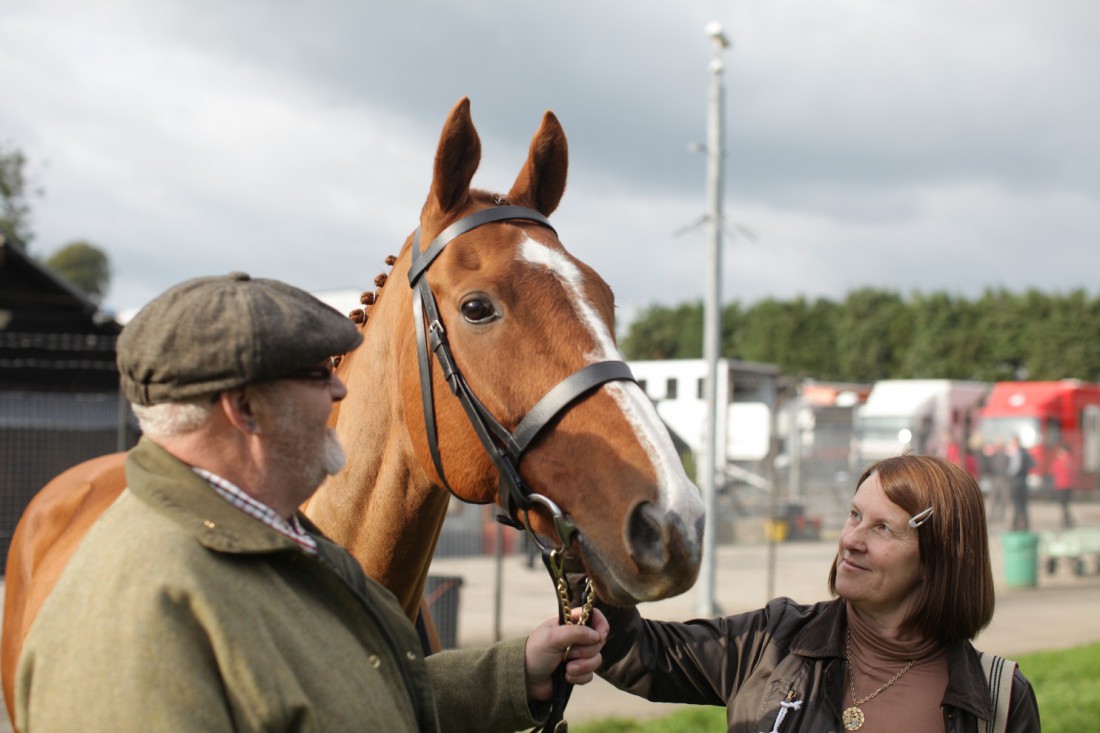
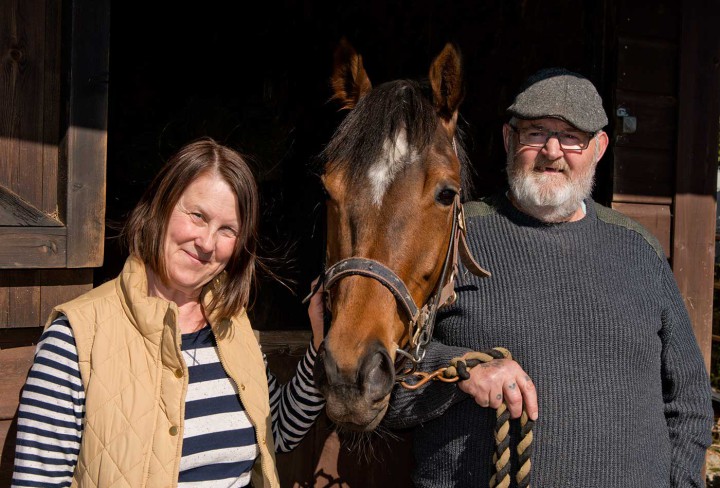

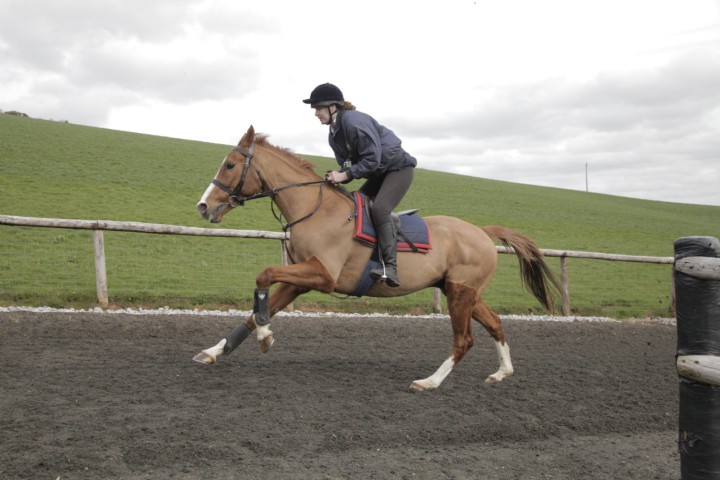
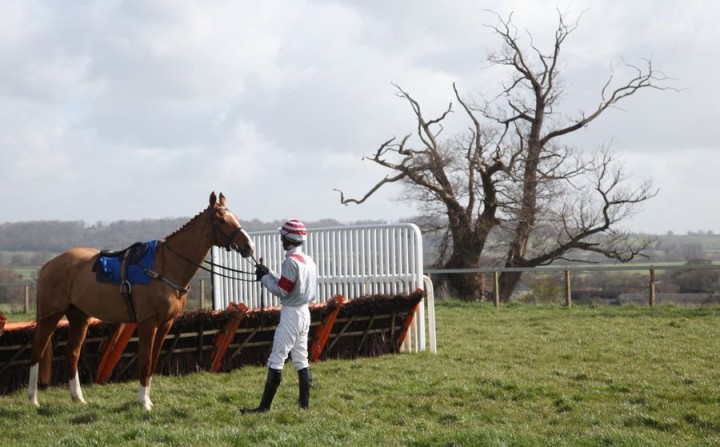
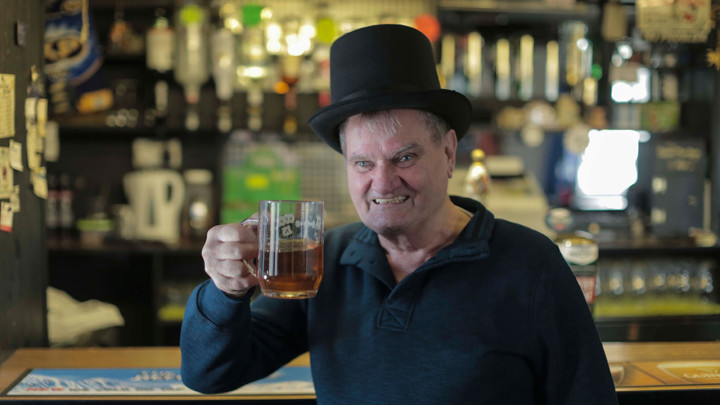
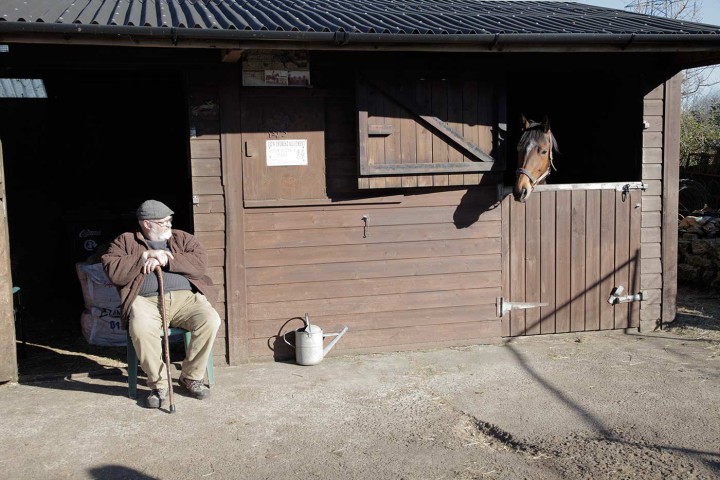

Great review. I LOVED the film!!!!!!!